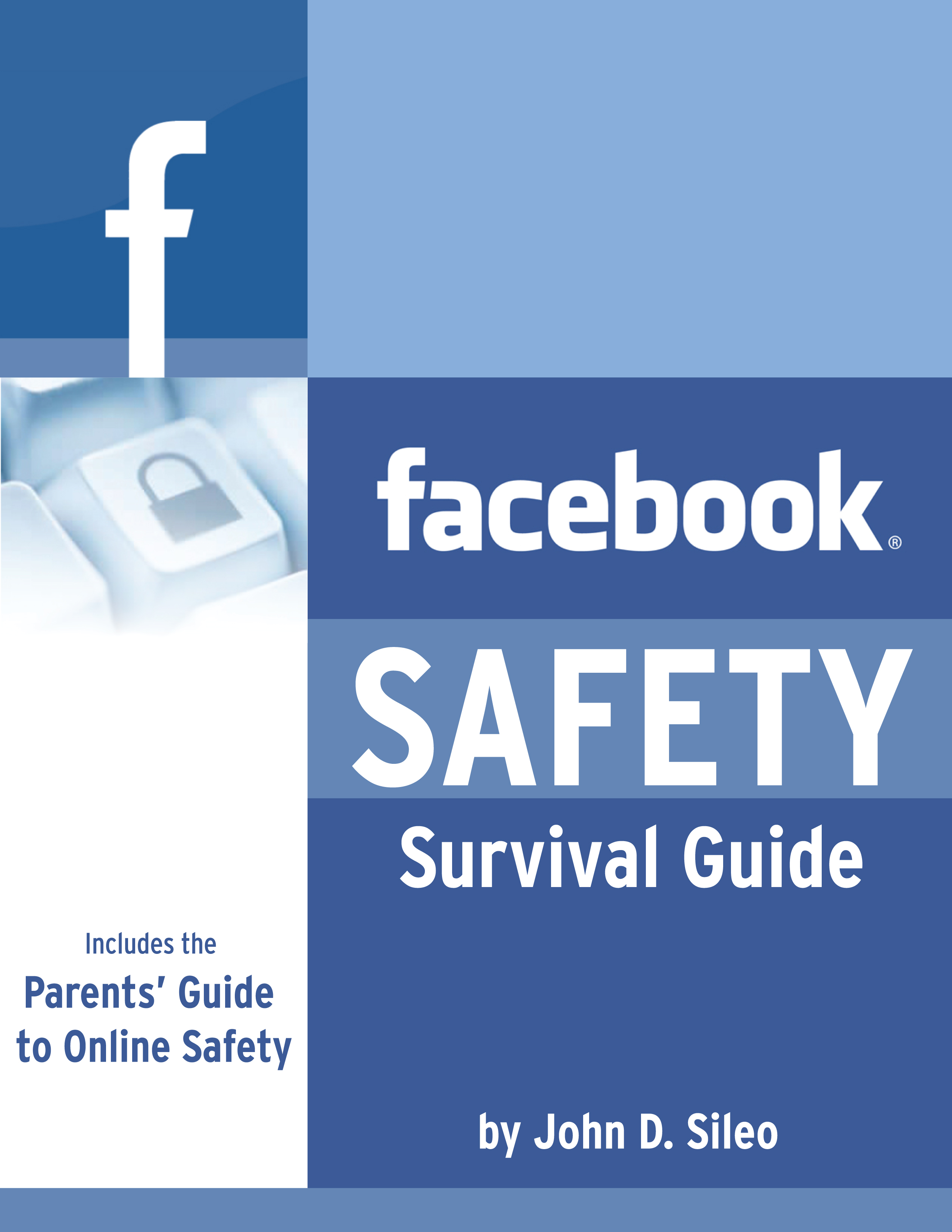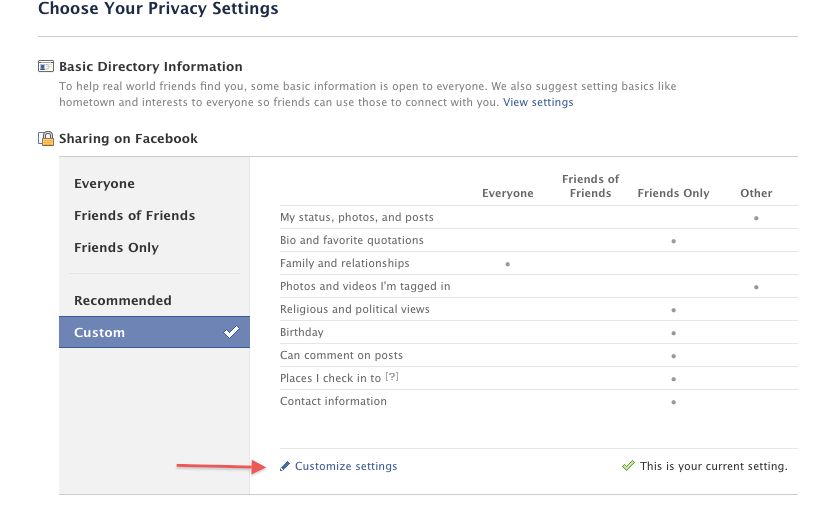Home | Solutions Blog | Facebook
Posts tagged "Facebook"
According to a Wall Street Journal investigation, Facebook apps are sharing more about you than you think.
The Journal stated in their article, Facebook in Privacy Breach, that many of the most popular applications on the site are transmitting personal information about you and even your friends to third party advertisers and data companies. Apps such as BumperSticker, Marketplace, or Zynga’s Farmville (with over 50 million users) can be sharing your Facebook User ID with these companies. This can give as little information as your name, or as much as your entire Facebook Profile. In some cases, your data is being shared even if you have set your Facebook privacy settings to disallow this type of sharing.
According to the Journal:
Posted in Identity Theft Prevention, Online Privacy by Identity Theft Speaker John Sileo.
Tags: Facebook, facebook privacy, Facebook Privacy Breach, Identity Theft Prevention, John Sileo, Privacy Breach, social networking, Social Networking Expert, Social Networking Privacy, social networking safety, Social Networking Speaker, Speaker, Wall Street Journal
Yahoo.com just published the following article that every Facebook user should read. I recommend you follow each of these suggestions, and if you want to learn more, read my Facebook Safety Survival Guide.
6 Things You Should Never Reveal on Facebook
by Kathy Kristof
 The whole social networking phenomenon has millions of Americans sharing their photos, favorite songs and details about their class reunions on Facebook, MySpace, Twitter and dozens of similar sites. But there are a handful of personal details that you should never say if you don’t want criminals — cyber or otherwise — to rob you blind, according to Beth Givens, executive director of the Privacy Rights Clearing House.
The whole social networking phenomenon has millions of Americans sharing their photos, favorite songs and details about their class reunions on Facebook, MySpace, Twitter and dozens of similar sites. But there are a handful of personal details that you should never say if you don’t want criminals — cyber or otherwise — to rob you blind, according to Beth Givens, executive director of the Privacy Rights Clearing House.
The folks at Insure.com also say that ill-advised Facebook postings increasingly can get your insurance canceled or cause you to pay dramatically more for everything from auto to life insurance coverage. By now almost everybody knows that those drunken party photos could cost you a job, too.
Posted in Identity Theft Prevention, Online Privacy by Identity Theft Speaker John Sileo.
Tags: Facebook, Facebook Safety, identity theft expert, Identity Theft Prevention, John Sileo, social networking, Social Networking Speaker, Yahoo.com
According to a recent survey by the Internet Security Firm AVG, more than 8 out of 10 babies worldwide under the age of 2 have some sort of online presence. A staggering 92% of American babies have an online presence compared to 73% of babies in Western Europe. The study covered 2,200 mothers in the UK and eight other industrialized countries. With new technology and social media outlets such as Facebook, MySpace, and Twitter, mothers and fathers are eager to post photos and write about their children – even before the baby is born.
When these children become adults, it will be literally impossible for them to separate from their digital past. I can just see the photos and stories posted when they begin to run for office, try to find a job or meet a partner. Digital memory lasts forever, and it is very unforgiving. Those of us older than about 35 have had a chance to put our bad decisions behind us. Children born today will have every aspect of their life recorded, uploaded, backed up, forwarded and publicized completely without their consent.
Posted in Online Privacy by Identity Theft Speaker John Sileo.
Tags: Babies Online, children, Facebook, identity theft expert, Identity Theft Statistics, John Sileo, Online Behaviors, Online Safety, Online Statistics, Social Networking Speaker, Statistics
 Facebook is a cigarette, information is the nicotine, and you are the addict. And it is time to stop blaming Facebook if you get privacy cancer.
Facebook is a cigarette, information is the nicotine, and you are the addict. And it is time to stop blaming Facebook if you get privacy cancer.
Years ago, after a long and drawn out fight, the tobacco industry was forced to put labels on their cigarette packs warning smokers that these nicotine delivery devices caused cancer, birth defects and premature death. The warnings did little to slow down sales of cigarettes, though they might have helped the tobacco companies avoid some costly lawsuits because, after all, they had clearly warned users about the dangers.
With the latest iteration of privacy settings being introduced this week on Facebook, Mark Zuckerberg (or more likely the brilliant Chief Operating Officer Sheryl Sandberg) has discovered a similar truth – you are either too addicted to the information drug, or too indifferent to the privacy consequences, to care.
Posted in Online Privacy by Identity Theft Speaker John Sileo.
Tags: Addiction, Application, Applications, Apps, Facebook, Groups, Information Addiction, Information Survival, John Sileo, Privacy, Sheryl Sandberg, Third-Party
Students heading to college and young adults living away from their parents’ home for the first time are particularly vulnerable to Identity Theft. In a 2010 survey, Javelin Strategy and Research found that young adults, aged 18-24, take the longest to detect identity theft – 132 days on average – when compared to other age groups.
College-bound students should take the following steps to fight identity theft:
1. School mailboxes can be easily tampered with and are not always safe. Instead of having sensitive (bank, legal, personal) documents sent to your apartment or dorm room, have them sent to a permanent address (your parents’ home or the post office) or sent requiring your signature.
2. Invest in a fire-proof lock box to store all your important documents. This can be vital when you are sharing a living space and can’t control everyone that comes and goes. You should lock up your Social Security card, passport and bank and credit card statements. Shred any important financial documents that come in the mail and never leave any sensitive mail lying out.
Posted in Identity Theft Prevention by Identity Theft Speaker John Sileo.
Tags: back to school, College Student, credit reports, Facebook, identity theft expert, Identity Theft Prevention, John Sileo, Student, Student Identity Theft
From Yahoo.com
MOUNT CLEMENS, Mich. – A judge removed a juror from a trial in suburban Detroit after the young woman wrote on Facebook that the defendant was guilty. The problem? The trial wasn’t over. Hadley Jons, of Warren just north of Detroit, could be found in contempt when she returns to the Macomb County circuit court Thursday.
Jons, 20, was a juror in a case of resisting arrest. On Aug. 11, a day off from the trial and before the prosecution finished its case, she wrote on Facebook that it was “gonna be fun to tell the defendant they’re guilty.”
This highlights an emerging issue in the world of information exposure and control. What you post on Facebook (words, videos, photos, status) can be used for other purposes (good and evil). Take a look at some of the ways law enforcement is using social networking profiles to keep tabs on you.
Posted in Identity Theft Prevention, Online Privacy by Identity Theft Speaker John Sileo.
Tags: Court, Dismissed, Facebook, John Sileo, Juror

Facebook: Press 2 For Law Enforcement
I received an email last night from a well-known TV anchor wanting my input on a new Facebook issue. He’d read that when calling Facebook Headquarters, the automated attendant comes on and gives you options to reach each department, and the second option was to press 2 for “law enforcement.”
It could seem odd to many, but it’s true. If you call the Facebook Headquarters (650-543-4800) and reach the switchboard, the 1st option is “For customer support, press 1” and the second option is “For Facebook law enforcement, press 2”. Law enforcement comes ahead of business development, marketing, press, and employment verification in the list of options. When you press 2, the next message says: “This message is only for members of law enforcement. Please note that due to a very large volume of incoming calls, the current call back time is two to four business days. For a faster response, please leave your work authorized email address… A member of Facebook’s security team will email in a timely manner.” Which means that Facebook is very busy fielding calls from law enforcement.
Posted in Identity Theft Prevention, Online Privacy by Identity Theft Speaker John Sileo.
Tags: 650-543-4800, Calling Facebook, Facebook, Facebook Phone Number, Facebook Safety, Identity Theft Prevention, Identity Theft Speaker, John Sileo, Online/Social Media Privacy, Privacy, Privacy Expert, social networking, Social Networking Expert
Last week Facebook introduced a new location tracking application called Facebook Places. This gives users the ability to check in with Facebook from their mobile device and update their friends (and even tag their friends) on where they are. What many Facebook users don’t realize is that this tool is currently activated by default, and in order to turn it off, users have to go in and adjust their privacy settings. Until you do that, your friends can check you in to different locations (and you may not even be there!).
Here is the step by step process to disable Facebook Places:
1. Log into your Facebook account, and at the top right drop down menu under Account click Privacy Settings.Once you are in Privacy Settings you will see this screen:
2. Click Custom (if that isn’t your selection already) and then click below 0n Customize Settings.
Posted in Identity Theft Prevention, Online Privacy by Identity Theft Speaker John Sileo.
Tags: facbook, Facebook, Facebook Places, facebook privacy, Facebook Safety, Identity Theft Prevention, Identity Theft Speaker, John Sileo, social networking, Social Networking Expert, Turn Off Facebook Places
Facebook just added a check-in or location-sharing feature, much like the one provided by FourSquare.com. The feature is designed to accomplish three main tasks:
- Help people share where they are in a social context
- See which friends are near by
- Discover nearby places and new places through friends’ profiles
But, by default, it also allows your friends to tag and publicize your location for you. It’s like being tagged in a photo, except the other person gets to share your location instead of your picture (even if you don’t want others to know where you are, and even if you are not there).
Here are some of the rarely discussed ways that Facebook Places will be used (now or in the future) that you might want to think about before checking in:
Posted in Identity Theft Prevention, Online Privacy by Identity Theft Speaker John Sileo.
Tags: Facebook, Geo Tagging, Location-Sharing, Places, Privacy, Sileo



















